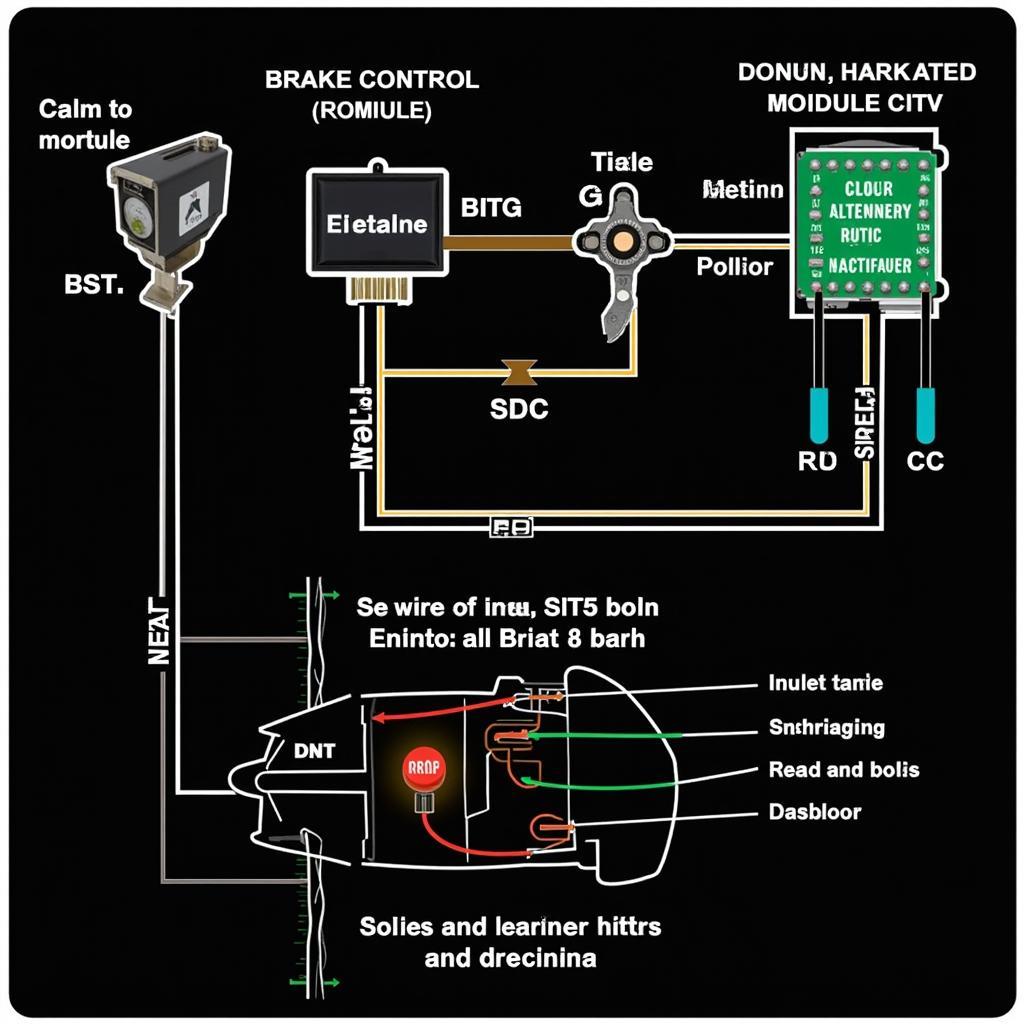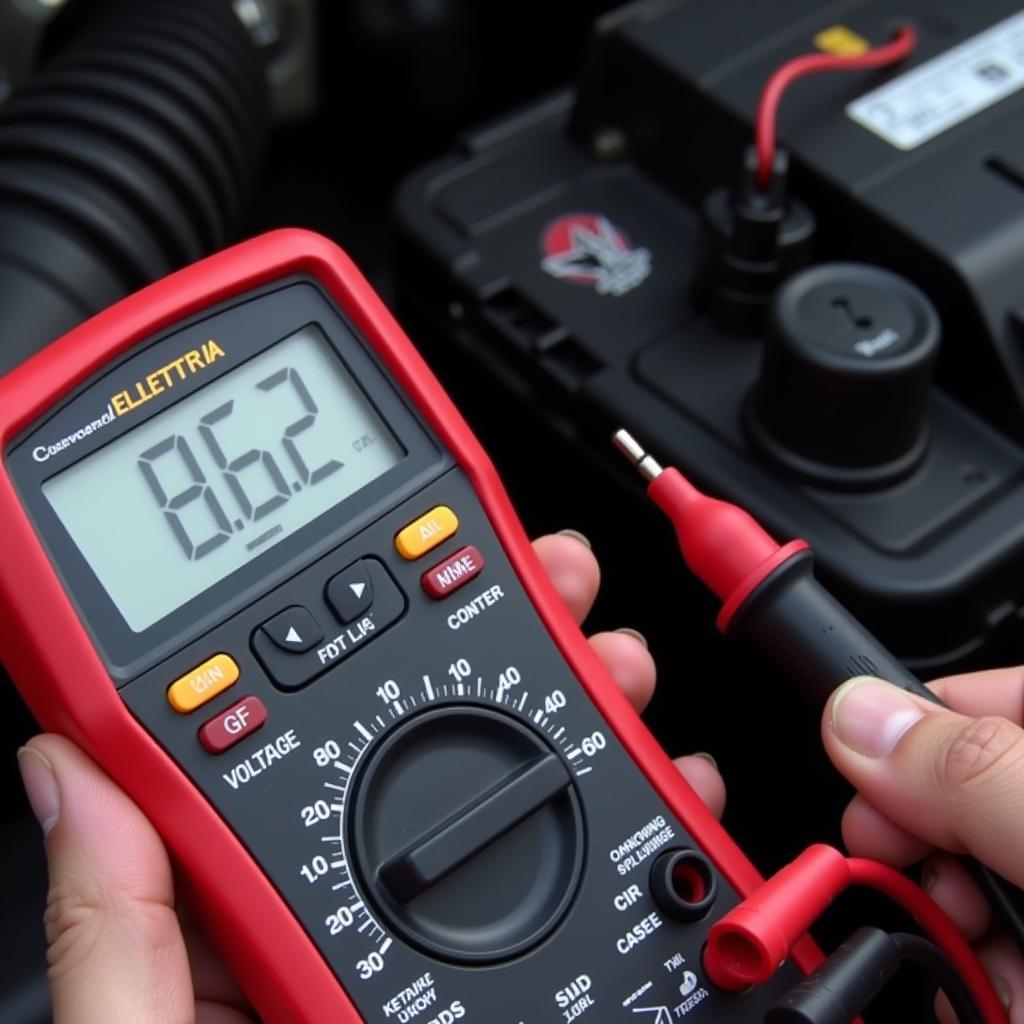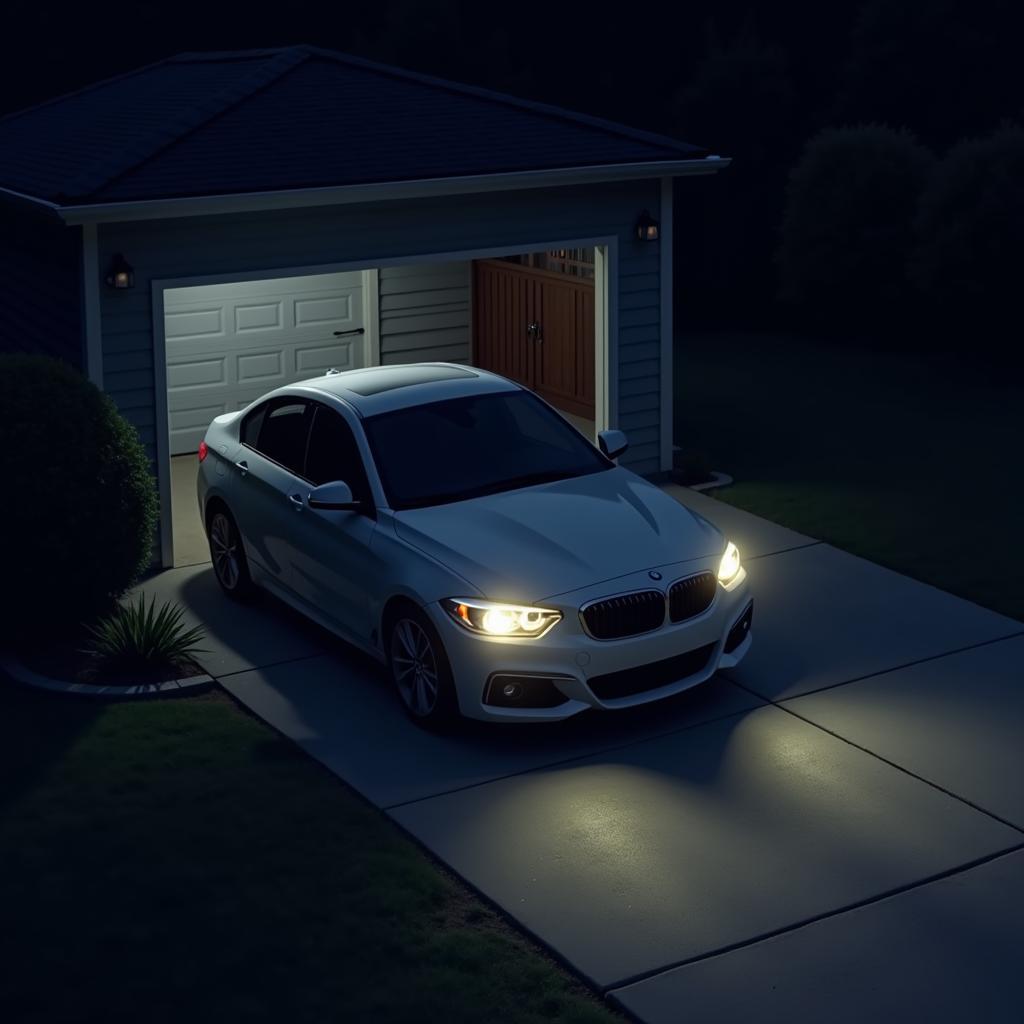The electric parking brake warning light is a safety feature in modern vehicles equipped with electronic parking brakes. When illuminated, it signals a potential issue with your parking brake system. While it can be alarming to see a warning light on your dashboard, understanding the common causes and possible solutions can help you address the issue promptly and safely.
This comprehensive guide will delve into the intricacies of the electric parking brake warning light, providing you with valuable insights to understand why it turns on and the steps you can take to resolve the issue.
Common Causes of an Electric Parking Brake Warning Light
The electric parking brake warning light can be triggered by several factors. Let’s explore some of the most common culprits:
- Engaged Parking Brake: This is the most straightforward reason. If you forget to disengage the parking brake before driving, the warning light will remain illuminated as a reminder.
- Faulty Brake Switch: The brake pedal switch is responsible for detecting when you engage or disengage the parking brake. A malfunctioning switch can send incorrect signals to the car’s computer, leading to the warning light illuminating.
- Low Battery Voltage: Your car’s electrical system powers the electric parking brake. A low battery or a faulty alternator can affect the parking brake’s operation, triggering the warning light.
- Worn Brake Pads: While not directly linked to the electric parking brake system, worn brake pads can sometimes trigger a warning light as a precautionary measure.
- Sensor Malfunction: Modern vehicles have various sensors that monitor different components, including the electric parking brake. A faulty sensor can send inaccurate information, causing the warning light to turn on.
 Electric Parking Brake System Components
Electric Parking Brake System Components
Troubleshooting the Electric Parking Brake Warning Light
Before heading to a mechanic, there are a few troubleshooting steps you can take to identify the root cause of the problem:
- Check Your Parking Brake: Ensure the parking brake is fully disengaged. Sometimes, the brake may not release completely, even if you think you’ve disengaged it.
- Restart Your Vehicle: Like many electronic glitches, a simple restart can sometimes resolve the issue. Turn off your engine, wait a few minutes, and then restart to see if the warning light disappears.
- Inspect Your Battery: If you suspect a weak battery, have it tested. A low battery should be charged or replaced.
- Check Brake Fluid: While less likely to cause the warning light directly, it’s good practice to check your brake fluid level regularly. Low brake fluid can indicate other braking system issues.
 Checking Car Battery Voltage
Checking Car Battery Voltage
When to Seek Professional Help
If the troubleshooting steps don’t resolve the issue, it’s crucial to seek professional assistance.
Here are a few situations where you should contact a qualified mechanic:
- The warning light remains on despite trying the basic troubleshooting steps.
- You hear unusual noises when engaging or disengaging the parking brake.
- You experience difficulty engaging or disengaging the parking brake.
Modern vehicles often require specialized diagnostic equipment and expertise to pinpoint and rectify issues within the electric parking brake system.
“Ignoring a persistent electric parking brake warning light can escalate a minor issue into a significant safety concern,” says John Miller, a certified automotive electrician with over 20 years of experience. “It’s always best to err on the side of caution and seek professional diagnosis and repair.”
Remote Diagnostics and Programming Solutions
Advancements in automotive technology have paved the way for remote diagnostics and programming solutions, offering greater convenience and efficiency for car owners. If you’re experiencing issues with your electric parking brake, consider seeking remote assistance from qualified professionals.
These experts can remotely access your vehicle’s computer system to diagnose the problem and, in some cases, even reprogram or update the software remotely to resolve the issue. This eliminates the need for a physical visit to the repair shop, saving you time and hassle.
Preventing Future Electric Parking Brake Issues
While not all issues are preventable, adopting a few good habits can minimize the risk of encountering problems with your electric parking brake:
- Regular Maintenance: Adhering to your vehicle’s recommended maintenance schedule, including brake inspections and fluid changes, is essential.
- Engage Parking Brake Properly: Always engage the parking brake fully when parked, especially on inclines, to prevent unnecessary strain on the system.
- Avoid Extreme Temperatures: Extreme hot or cold temperatures can affect battery performance and potentially impact the electric parking brake system. Park in a shaded area during hot weather and consider using a battery warmer in extremely cold conditions.
Conclusion
The electric parking brake warning light, while potentially concerning, is a valuable safety feature. Understanding its implications and taking prompt action can save you from potential hazards and costly repairs. By following the troubleshooting tips, seeking professional help when needed, and adopting preventive measures, you can ensure the optimal functionality of your electric parking brake system, keeping you safe on the road.
FAQs about Electric Parking Brake Warning Light
Q1: Can I still drive my car with the electric parking brake warning light on?
A: It’s not advisable to drive with the warning light illuminated. It indicates a potential issue with your parking brake system, which could lead to safety concerns.
Q2: How much does it cost to fix an electric parking brake problem?
A: The cost of repair varies depending on the underlying cause. A simple switch replacement might be relatively inexpensive, while a faulty actuator or control module could be more costly.
Q3: Is it safe to replace an electric parking brake switch myself?
A: While some car owners may have the technical skills, it’s generally recommended to have a qualified mechanic handle such repairs. Incorrect installation can affect brake performance and compromise safety.
Q4: Are electric parking brakes more reliable than traditional handbrakes?
A: Electric parking brakes, while technologically advanced, are not immune to issues. Both systems have their pros and cons, and regular maintenance is crucial for optimal performance and longevity.
Q5: Can a software update fix an electric parking brake problem?
A: In some cases, software glitches can trigger warning lights or affect system functionality. A software update from the manufacturer might be able to resolve these issues.
This comprehensive guide has provided insights into the electric parking brake warning light. Remember, if you encounter this issue, address it promptly to ensure your safety and prevent further complications.
Internal Links:
- For Mazda CX-5 owners experiencing this issue, refer to our guide on electric parking brake warning light Mazda CX 5.
- If you drive a 2016 Mazda 6, we have a dedicated article addressing the 2016 Mazda 6 electric parking brake warning light.
- Astra owners can find specific information regarding the electric parking brake warning light Astra here.
- For those with a Tiguan, our guide on the Tiguan electric parking brake warning light can provide solutions.
- Mazda 3 owners can troubleshoot the electric parking brake warning light Mazda 3 with our detailed article.

